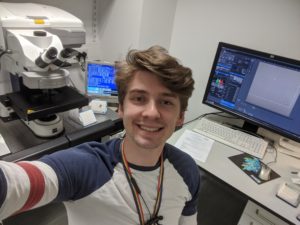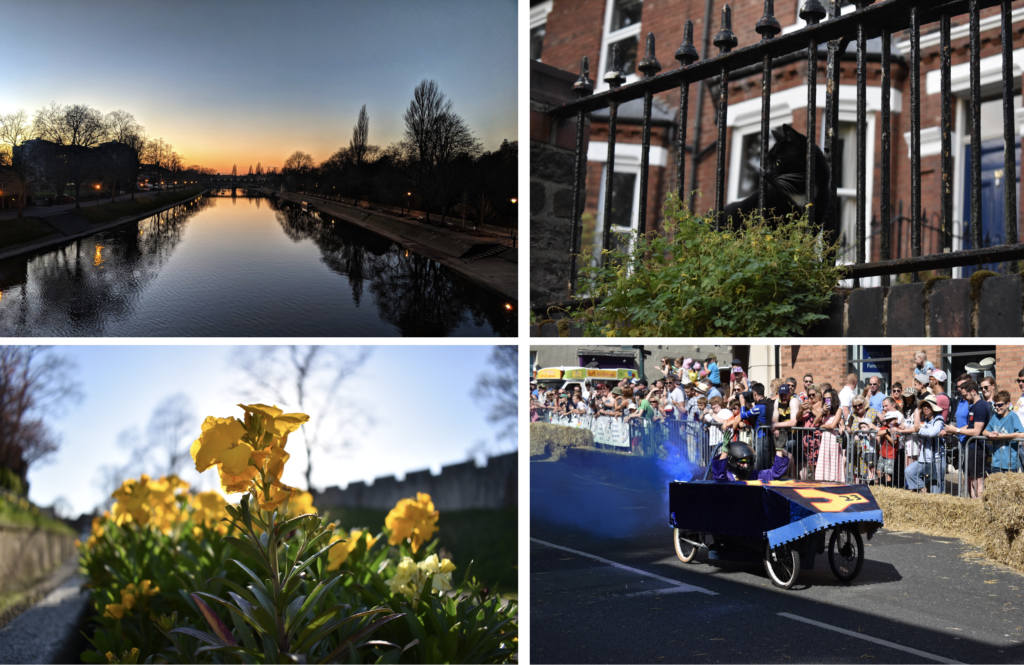Alex has just now, in October, entered third year – how time flies!
Describe your research in one tweet.
I am researching how low-temperature plasma (LTP) can be used to damage the outer membrane (OM) of Gram-negative bacteria. Understanding the subsequent biophysical interactions, we may be able to understand how LTP can combat the threat of antimicrobial-resistant bacteria.
Why did you go for this project?
Upon finishing my integrated masters in Physics I had experience in two fields: biophysics (I completed a biophysics internship with Adam Wollman in the Leake group) and plasma physics (my masters project involving fusion energy). I couldn’t decide between the two fields, but ended up coming across my PhD which was a mix of both, so it was perfect for me!
What is the toughest challenge you’ve had to overcome in science so far?
The transition from straight physics into a microbiology lab certainly puts me through a new hurdle every day – I hadn’t studied any biology since A level! I have really had to learn on my feet over these last two years, and have had to get used to asking some very simple questions to anyone who will answer them. I have only recently learnt what a Western blot is (in theory, I have no idea how to DO a western blot). I am hoping to get to the end of this PhD without ever running a blot or a gel.
What do you do when you’re not sciencing?
Exercise has been an absolute life-saver for my mental wellbeing – so I very much enjoy going on a run, going to the gym or doing bouldering. However, with all the hand sanitizer I have been using, the ripped skin on my hands from climbing has not been pleasant! As an excuse to be out in the sun, I am into amateur photography (mostly cats I find).
Otherwise, I just sit by the river with good drinks and good pals. I also enjoy dabbling in amateur theatre – specifically acting, producing and lighting design. Unfortunately, this has dropped off the radar a bit with how busy the PhD life is!
What has been your favourite play to work on?
We did a very ambitious production of And Then There Were None by Agatha Christie, who doesn’t love a classic who-done-it? I produced the show and did all the tech. It was a long 15 weeks preparing it and an even longer week putting it together in the venue, we ended up working 3 days straight putting up the set and painting it all. Getting 30 mins of sleep here and there in a blackbox theatre during a cold November definitely wasn’t the dream. We also had to create a pulley system so that (SPOILERS) Vera was able to hang herself on stage. It involved a full harness, a long bungee cable, several stagehands, and a lot of confidence that our cast and crew knew what they were doing!
What inspired you to do science?
Honestly, I think it was a mix between Star Wars and Jurassic Park. This led me at a young age to be very interested in science, albeit for all the wrong reasons (please don’t start cloning dinosaurs). Eventually, my interest manifested into an actual passion during secondary school with the help of a handful of fantastic teachers. While I still enjoy science fiction a lot, my interest is now in real science.


